Product Description
Specification:
| Product name | Low Noise Wardrobe Pulley Sliding Door System Accessories Nylon Plastic Roller Wheels with Bearing |
| Housing material | iron / stainless steel / aluminum |
| Surface treatment | zinc plated / nickel plated / sandblasting |
| Wheel material | nylon / plastic / PP / POM |
| Wheel color | black / green / white / orange / customized |
| Features | low noise,easy installation,sliding smoothly,long life,standard,customized,etc. |
| Application | furniture accessories,such as sliding door and wardrobe |
| Contents | 2pcs bottom rollers, 2pcs top rollers, 6pcs screws |
Product Display:
Similar Products:
Company Profile:
FAQ:
Q: Are you manufacturer?
A: Yes, we are professional manufacturer focus on door and window roller pulley for more than 8 years.
Q: Do you offer free sample?
A: Yes, we are very glad to offer free samples for you to check the quality.
Q: Can we make our own color box?
A: Yes, if the order quantity reaches 1000 sets, we can make customized color box for you.
Q: Can we print our logo on the products?
A: Yes, we can print your logo on the products according to your design.
Q: How does your factory do regarding quality control?
A: 80% of staff has 10 years experience,mature skilled technical team and a complete quality management system to ensure the high quality.
Q: What is the after-sale service for the sliding rollers?
A: We have online technical support. If it is the quality problem, we will replace the broken ones with the new.
Q: How long is the production time?
A: For samples in stock,shipped in 2 days.if not in stock, the lead time is in 7 days. For mass production, the lead time is around 15 days after receiving the deposit payment.
Q: How about shipment?
A: For small order, we can ship it by DHL, FedEx, UPS, TNT, etc. For mass production order, we can ship it by sea or by air.
/* January 22, 2571 19:08:37 */!function(){function s(e,r){var a,o={};try{e&&e.split(“,”).forEach(function(e,t){e&&(a=e.match(/(.*?):(.*)$/))&&1
| After-sales Service: | Online Support, Free Spare Parts |
|---|---|
| Warranty: | 2 Years |
| Splittable: | Unsplittable |
| Samples: |
US$ 10/Set
1 Set(Min.Order) | Order Sample |
|---|
| Customization: |
Available
|
|
|---|
.shipping-cost-tm .tm-status-off{background: none;padding:0;color: #1470cc}
| Shipping Cost:
Estimated freight per unit. |
about shipping cost and estimated delivery time. |
|---|
| Payment Method: |
|
|---|---|
|
Initial Payment Full Payment |
| Currency: | US$ |
|---|
| Return&refunds: | You can apply for a refund up to 30 days after receipt of the products. |
|---|
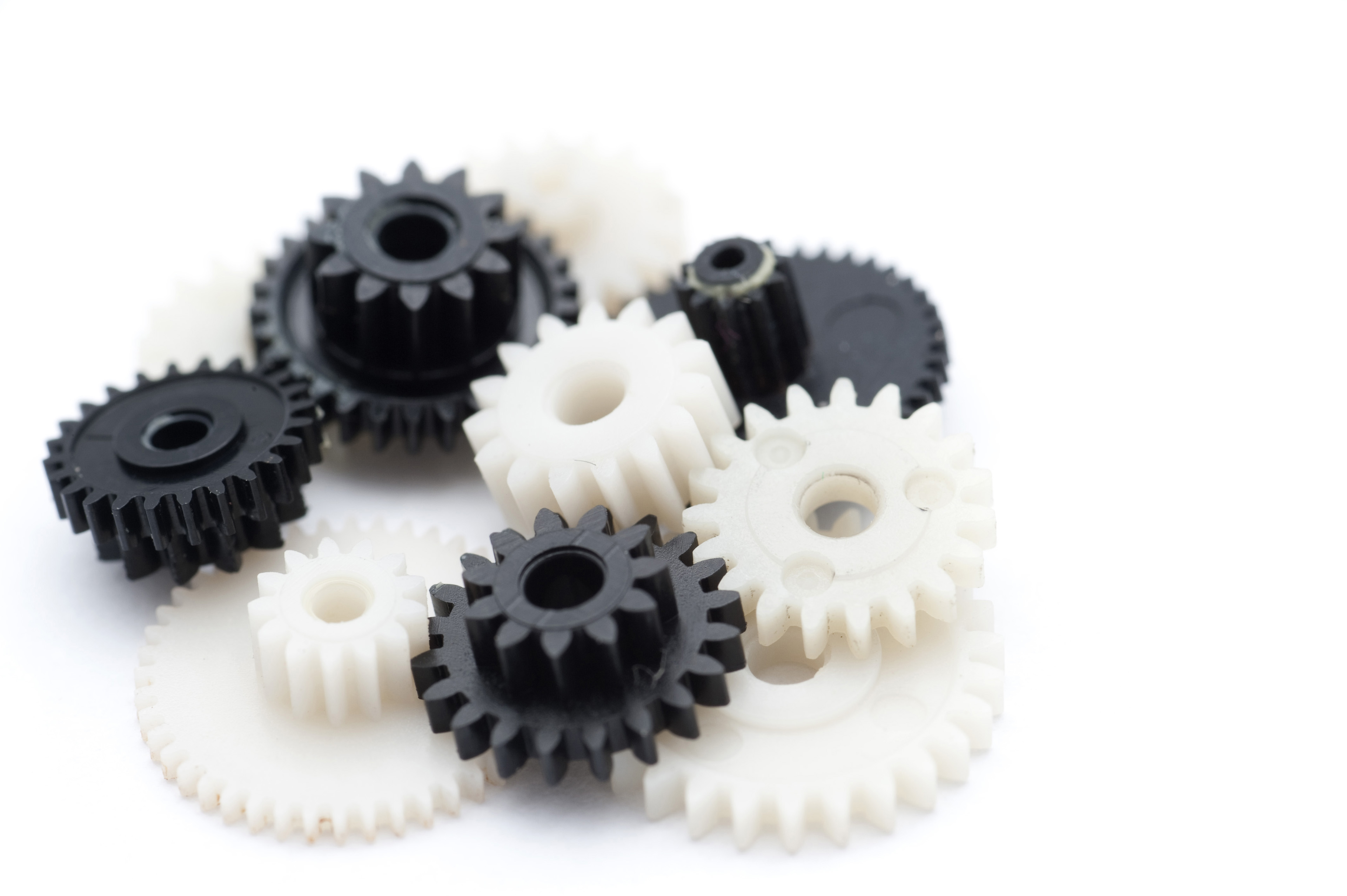
Can you explain the impact of plastic wheels on the overall efficiency of rolling systems?
Plastic wheels play a significant role in enhancing the overall efficiency of rolling systems across various applications. Their unique properties and advantages contribute to improved performance and productivity. Here’s how plastic wheels impact efficiency:
- 1. Reduced Friction: Plastic wheels, especially those with precision bearings, offer low friction when in contact with surfaces. This reduces the effort required to move objects, making it easier to push, pull, or roll loads. Less friction also means less energy is expended during operation.
- 2. Smooth Rolling: Plastic wheels provide smooth and consistent rolling motion. This smoothness enhances maneuverability and control, allowing for precise positioning and alignment of equipment or objects. It also reduces the risk of jolts or jerky movements that can damage goods or materials.
- 3. Weight Reduction: Plastic wheels are often lighter than metal alternatives. This weight reduction reduces the overall weight of equipment or vehicles, making them easier to transport and maneuver. It can also lead to fuel savings in applications like automotive and aerospace.
- 4. Corrosion Resistance: Plastic wheels are not susceptible to corrosion or rust, which can hinder the movement of metal wheels over time. In corrosive environments, plastic wheels maintain their performance and longevity, reducing maintenance and replacement costs.
- 5. Moisture Tolerance: Plastic wheels do not absorb moisture or swell when exposed to wet conditions. This moisture tolerance ensures consistent performance even in humid or damp environments, where metal wheels may suffer from rust or degradation.
- 6. Quiet Operation: Plastic wheels are known for their quiet operation. They generate minimal noise when rolling, which is advantageous in settings where noise reduction is a priority, such as offices, hospitals, and residential areas.
- 7. Floor Protection: Plastic wheels are less likely to damage or mark flooring surfaces compared to metal or rubber wheels. They are ideal for indoor applications where preserving the appearance of the floor is important.
- 8. Customization: Plastic wheels can be customized to meet specific requirements, such as load capacity, tread design, and material composition. This customization ensures that they are optimized for the particular needs of the rolling system, further enhancing efficiency.
- 9. Longevity: High-quality plastic wheels are designed for durability and extended service life. Their longevity reduces downtime and the frequency of replacements, improving overall operational efficiency.
- 10. Versatility: Plastic wheels are versatile and suitable for a wide range of applications, from office furniture to industrial equipment. Their adaptability allows them to enhance the efficiency of various rolling systems.
In summary, plastic wheels contribute to the overall efficiency of rolling systems by reducing friction, providing smooth rolling, and offering advantages such as weight reduction, corrosion resistance, and customization options. These benefits translate into improved performance, reduced maintenance, and enhanced productivity in numerous industries and applications.
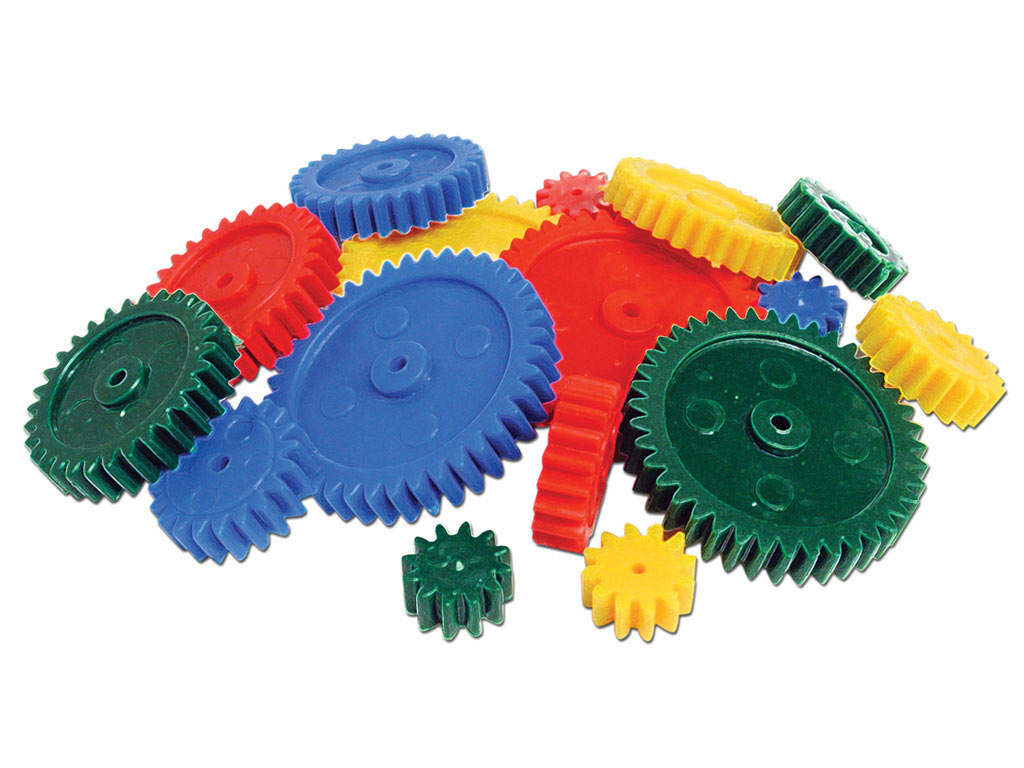
Can you provide insights into the importance of proper installation and alignment of plastic wheels?
The proper installation and alignment of plastic wheels are crucial for ensuring optimal performance, safety, and longevity in various applications. Here are key insights into their importance:
- 1. Load Distribution: Correct installation ensures that the weight load is evenly distributed across all wheels. Proper weight distribution prevents overloading of individual wheels, reducing the risk of premature wear and potential wheel failure.
- 2. Reduced Friction: Properly aligned wheels minimize friction and rolling resistance. Misalignment can result in increased friction, requiring more effort to move equipment or objects. This can lead to reduced efficiency and increased wear on the wheels.
- 3. Improved Maneuverability: Properly aligned wheels provide better maneuverability and control. Whether in industrial settings or everyday use, aligned wheels allow for smooth and precise movement, enhancing productivity and safety.
- 4. Floor Protection: Aligning wheels correctly helps protect flooring surfaces. Misaligned or unevenly loaded wheels can cause floor damage, such as scuffs, scratches, or dents, which can be costly to repair.
- 5. Enhanced Stability: Proper alignment contributes to the stability of equipment and vehicles. Misaligned wheels can result in wobbling or instability, posing safety hazards and potentially causing accidents or damage.
- 6. Longevity: Proper installation and alignment extend the service life of plastic wheels. Misalignment can lead to uneven wear, reducing the lifespan of the wheels and necessitating premature replacements.
- 7. Noise Reduction: Misaligned wheels can generate noise due to uneven rolling. Proper alignment minimizes noise pollution, making plastic wheels suitable for applications where quiet operation is essential.
- 8. Safety: Ensuring that wheels are correctly installed and aligned is crucial for safety. Misalignment or improper installation can lead to accidents, equipment failure, and injuries, especially in industrial and automotive settings.
- 9. Maintenance Efficiency: Properly aligned wheels are easier to maintain. Routine inspections and maintenance tasks are more straightforward when wheels are aligned, reducing downtime and maintenance costs.
- 10. Performance Consistency: Correct alignment results in consistent performance. This is essential for applications where precision and repeatability are critical, such as conveyor systems or automated machinery.
In summary, proper installation and alignment of plastic wheels are fundamental to their functionality and performance. They contribute to load distribution, reduced friction, improved maneuverability, floor protection, stability, longevity, noise reduction, safety, maintenance efficiency, and performance consistency. Neglecting alignment can lead to various issues that impact efficiency, safety, and the overall quality of operations.
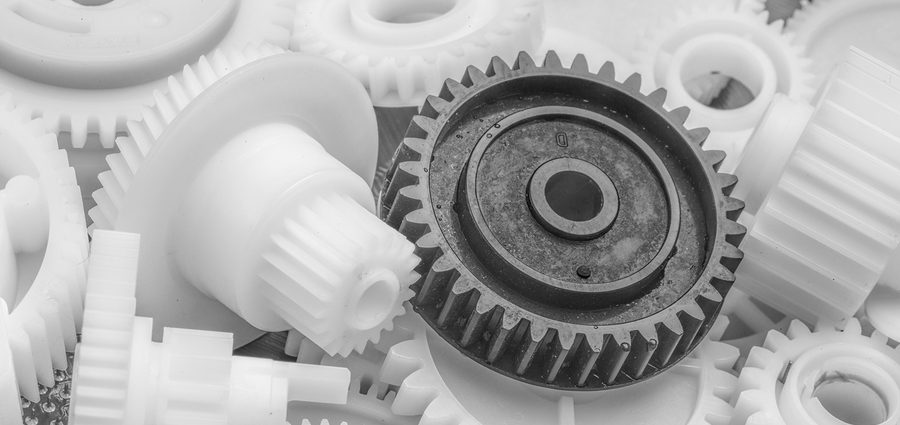
What are the different types and sizes of plastic wheels available in the market?
The market offers a variety of plastic wheels, each designed for specific applications and available in various sizes. Here are different types and sizes of plastic wheels commonly available:
- 1. Caster Wheels: Caster wheels are used for mobility and swiveling in a wide range of applications. They come in sizes ranging from small, furniture casters to large, heavy-duty industrial casters.
- 2. Hand Truck Wheels: These wheels are commonly used on hand trucks and dollies for moving heavy loads. They are available in sizes such as 8-inch, 10-inch, and 12-inch diameters.
- 3. Trolley Wheels: Trolley wheels are used on material handling carts and trolleys. They come in various sizes, including 4-inch, 5-inch, and 6-inch diameters.
- 4. Lawnmower Wheels: These wheels are designed for lawnmowers and other outdoor equipment. They are available in sizes like 8-inch, 10-inch, and 12-inch diameters.
- 5. Office Chair Casters: Office chair casters come in different sizes to fit various chair bases. Common sizes include 2-inch, 2.5-inch, and 3-inch diameters.
- 6. Heavy-Duty Industrial Wheels: These wheels are used in industrial and manufacturing settings. They are available in larger sizes, such as 6 inches, 8 inches, and even up to 12 inches or more in diameter.
- 7. Skateboard Wheels: Plastic skateboard wheels come in various sizes, typically ranging from 50mm to 60mm in diameter, with different hardness levels for different riding styles.
- 8. Conveyor Wheels: Conveyor wheels are used in material handling and conveyor systems. They come in sizes suitable for specific conveyor designs and loads.
- 9. V-Groove Wheels: V-groove wheels are designed for use on tracks or grooves. They come in sizes suitable for different track profiles and load capacities.
- 10. Trailer Jack Wheels: Trailer jack wheels are used for trailer jacks and stabilizers. They come in sizes such as 6-inch, 8-inch, and 10-inch diameters.
- 11. Light-Duty Wheels: These wheels are used in various light-duty applications, such as small carts and furniture. They are available in sizes ranging from 1 inch to 6 inches in diameter.
- 12. Specialized Wheels: Some plastic wheels are designed for specific applications, such as luggage wheels, boat trailer rollers, and gate wheels. Their sizes vary depending on the intended use.
The availability of plastic wheels in different types and sizes allows them to cater to a wide range of industries and applications. When selecting a plastic wheel, it’s essential to consider factors like load capacity, wheel diameter, tread design, and material to ensure it meets the requirements of the specific use case.


editor by Dream 2024-05-15
China high quality CHINAMFG Industrial Hand Pallet Nylon Plastic Caster Wheels with Bearing
Product Description
WBD Caster Manufacturer 20+ years:WBD industrial hand pallet nylon plastic caster wheels with bearing
Product Description
Product Parameters
| ART-NO. | Wheel Diameter | Bearing Hole Diameter | Bearing Type | Load Capacity |
| I018F160MCPA/FP | 160*50mm | 20*50mm | Ball Bearing | 350/250kg |
| I018F180MCPA/FP | 180*50mm | 20*50mm | Ball Bearing | 650/600kg |
| I018F200MCPA/FP | 200*50mm | 20*50mm | Ball Bearing | 1000/950kg |
Characteristics of different material casters
1. PU casters: Whether the casters work indoors or outdoors, they can meet your requirements.
2. TRP casters: They can be used in the situations that require less noise and work quietly, like working in hotels, on medical equipment, on floors, on wooden floors, on tile floors ….
3. Nylon casters and iron casters: The casters are suitable for the places where the ground is uneven or where there are iron scraps on the ground.
4. Rubber casters: The casters are inappropriate under the condition of acid, grease and chemicals.
5. Pneumatic casters: The casters are suitable for light load and the uneven roads .
In order to meet the market demands, we always keep paying attention to improving and developing our products and ourselves. Currently we offer more than 2000 different kinds of high quality casters combinations for almost every applications such as: industrial machine, medical facility, furniture, trolley, shopping cart, hand pallet, scaffolding, shelf and so on.
/* January 22, 2571 19:08:37 */!function(){function s(e,r){var a,o={};try{e&&e.split(“,”).forEach(function(e,t){e&&(a=e.match(/(.*?):(.*)$/))&&1
| Type: | Rotating Wheel |
|---|---|
| Wheel Material: | Nylon |
| Brake: | With Brake |
| Bearing Type: | Ball Bearing |
| Surface Treatment: | Nylon |
| Brand: | Wbd |
| Customization: |
Available
|
|
|---|
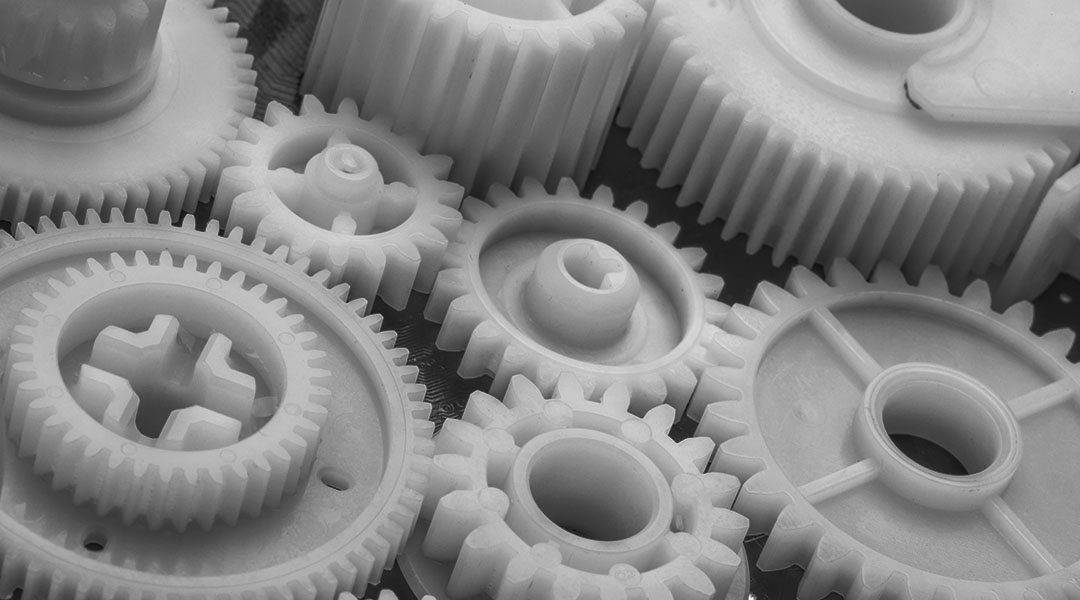
Can you provide examples of products or machinery that commonly use plastic wheels?
Plastic wheels are used in a wide range of products and machinery across various industries due to their versatility and unique qualities. Here are examples of products and machinery that commonly use plastic wheels:
- 1. Office Furniture: Office chairs often feature plastic caster wheels for smooth and quiet movement on office floors.
- 2. Material Handling Equipment: Hand trucks, dollies, and carts used in warehouses and distribution centers frequently use plastic wheels to transport goods efficiently.
- 3. Lawn and Garden Equipment: Lawnmowers, garden carts, and wheelbarrows are equipped with plastic wheels for easy maneuverability on lawns and uneven terrain.
- 4. Retail and Shopping Carts: Shopping carts in supermarkets and retail stores typically have plastic wheels for easy navigation through aisles.
- 5. Medical Equipment: Hospital beds, medical carts, and mobility aids often incorporate plastic wheels, as they are easy to clean and resist corrosion.
- 6. Aerospace Ground Support: Ground support equipment at airports, including baggage carts and maintenance vehicles, may use plastic wheels for their lightweight properties.
- 7. Food and Beverage Handling: Food service equipment, such as serving trolleys and food processing machinery, often feature plastic wheels due to their resistance to moisture and corrosion.
- 8. Recreational Vehicles (RVs): RV leveling jacks and stabilizers utilize plastic wheels to provide stability and ease of adjustment when parked.
- 9. DIY and Home Improvement Tools: Hand trucks, utility carts, and toolboxes used for DIY and home improvement projects may have plastic wheels for ease of movement.
- 10. Industrial Machinery: Some industrial machines and equipment incorporate plastic wheels to facilitate movement and protect factory floors.
- 11. Conveyor Systems: Conveyor systems in manufacturing and logistics often use plastic wheels to support the movement of goods along production lines.
- 12. Skateboards and Skateboarding Equipment: Skateboard wheels are typically made of plastic, offering various sizes and hardness levels to suit different riding styles.
- 13. Boat Trailer Rollers: Rollers on boat trailers are commonly made of plastic, as they resist corrosion when exposed to water and provide smooth boat launching and retrieval.
- 14. Gate Hardware: Some gate wheels and sliding door systems feature plastic wheels for smooth operation and reduced noise.
These examples demonstrate the widespread use of plastic wheels in diverse applications, emphasizing their adaptability and suitability for various industries and products.
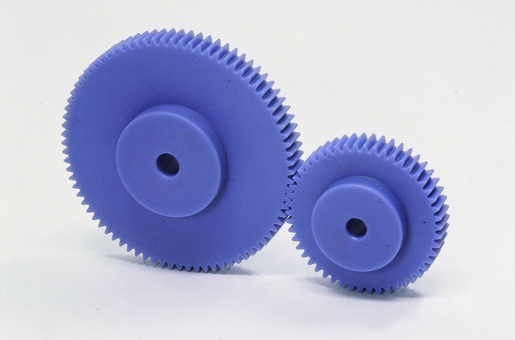
How do plastic wheels contribute to noise reduction and smooth operation in various applications?
Plastic wheels play a significant role in reducing noise and ensuring smooth operation in a wide range of applications across various industries. Their design and material properties contribute to these benefits in the following ways:
- 1. Low Friction: Plastic wheels typically have low friction coefficients when in contact with surfaces. This characteristic minimizes the generation of frictional noise during movement. As a result, plastic wheels roll quietly and smoothly.
- 2. Precision Bearings: Many plastic wheel assemblies feature precision ball bearings or roller bearings. These bearings reduce rotational resistance and provide a smooth, friction-free rotation, further contributing to noise reduction and smooth operation.
- 3. Vibration Dampening: Plastic materials have natural vibration-dampening properties. When used in wheels, they can absorb and dissipate vibrations caused by uneven surfaces, reducing the transmission of vibration-related noise to the surroundings.
- 4. Floor Protection: Plastic wheels are gentle on flooring surfaces. They do not scuff, scratch, or mark floors, which is essential in applications where floor protection and aesthetics are important, such as in homes, offices, and healthcare facilities.
- 5. Absence of Metal-to-Metal Contact: Unlike metal wheels, plastic wheels do not produce noise through metal-to-metal contact with surfaces. This lack of contact noise makes plastic wheels quieter and more suitable for noise-sensitive environments.
- 6. Lightweight Construction: Plastic wheels are often lighter than metal alternatives. Their reduced weight places less stress on equipment, resulting in less noise generated by impacts or vibrations when wheels encounter obstacles or uneven terrain.
- 7. Non-Marking Materials: Some plastic wheels are designed with non-marking materials that prevent them from leaving marks or streaks on floors. This feature is valuable in applications where maintaining a clean and unblemished appearance is a priority.
- 8. Custom Tread Design: Plastic wheels can have customized tread patterns that optimize grip and reduce noise. Treads with unique designs can minimize rolling resistance, improve traction, and contribute to quieter operation.
- 9. Moisture Resistance: Plastic wheels do not absorb moisture, which can affect the performance of certain materials like rubber. This moisture resistance ensures consistent operation even in damp conditions.
- 10. Versatility: Plastic wheels are versatile and can be tailored to specific applications. By selecting the right plastic material, bearing type, and tread design, manufacturers can optimize plastic wheels for noise reduction and smooth operation in a variety of settings.
Overall, the noise reduction and smooth operation provided by plastic wheels make them suitable for applications where minimizing noise pollution, ensuring comfort, and maintaining floor integrity are essential considerations.

What is a plastic wheel, and how is it different from other types of wheels?
A plastic wheel is a type of wheel that is primarily constructed using plastic materials. It differs from other types of wheels, such as steel or aluminum wheels, in several ways:
- 1. Material Composition: The most significant difference is the material used. Plastic wheels are made from various types of plastics, such as polypropylene, polyurethane, or nylon. In contrast, steel wheels are constructed from metal, and aluminum wheels are made from aluminum alloys.
- 2. Weight: Plastic wheels are generally lighter than their metal counterparts. This reduced weight can be advantageous for applications where weight savings are essential, such as in industries like automotive and aerospace.
- 3. Corrosion Resistance: Plastic wheels are inherently resistant to corrosion, making them suitable for use in wet or corrosive environments. In contrast, metal wheels, especially steel wheels, are susceptible to rust and corrosion over time.
- 4. Cost: Plastic wheels are often more cost-effective to manufacture than metal wheels. This cost advantage can make plastic wheels an attractive option for various applications, including consumer products and industrial equipment.
- 5. Load Capacity: Metal wheels, especially those made from steel, tend to have higher load-carrying capacities compared to plastic wheels. Metal wheels are often used in heavy-duty applications where substantial weight-bearing capacity is required.
- 6. Durability: Metal wheels are generally more durable and have a longer lifespan, especially in high-stress or abrasive environments. Plastic wheels may wear out more quickly when subjected to heavy loads or rough surfaces.
- 7. Noise and Vibration: Plastic wheels can offer noise and vibration dampening properties, which can be advantageous in applications where reducing noise is essential, such as in office chair wheels.
- 8. Heat Resistance: Metal wheels typically have better heat resistance properties compared to plastic wheels. Metal wheels can withstand higher temperatures without deforming or losing structural integrity.
- 9. Aesthetic Options: Metal wheels, particularly aluminum wheels, offer a wide range of aesthetic options and finishes. This makes them popular in automotive and custom wheel applications where appearance matters.
The choice between plastic wheels and other types of wheels depends on the specific requirements of the application. Plastic wheels are often preferred for their lightweight, corrosion resistance, and cost-effectiveness, while metal wheels excel in heavy-duty and high-load applications.


editor by Dream 2024-05-07
China high quality Durable Plastic Bearing Bag Wheels Soft Fabric Luggage Wheels
Product Description
Certifications
FAQ
Q1: Are you a trading company or manufacturer ?
A1: We are a manufacturer with more than 500 employees and our own sales department.
Q2:What is your company’s way of customization?
1.New product development and design: a new idea of customers, from our drawing design to 3D modeling, mold design, mold production, finished product sample, etc., one- stop to complete the design and development to mass production.
2. Personalized customization:( Based on the company’s mature plan of 20,000 sets, the size, section number, color, LOGO can be customized, free of mold cost,) fast customization. New products customized in any way can be free to use more than 160 patents of the company, all through the professional equipment of the whole project testing, to ensure quality.
Q3:Is the mold of your company also designed and processed by yourself?
A3:Yes, there are 16 R&D and design engineers with more than 10 years of experience in the mold department of our company, who can independently complete the process from mold design to mold making.
Q4: How long is your delivery time ?
A4: Generally, it is 5-10 days if the goods are in stock; or it needs 25-35 days if it’s out of stock.It depends on the quantity.
Q5: Do you provide samples ? Is it free or extra ?
A5: Yes, we could offer the sample for free charge with 2pc/item, but do not pay the freight.
Q6: What’s your terms of payment ?
A6: Payment=2000USD, 30% T/T in advance, 70% balance before shipment.
Q7: Could you please tell me which parts your company mainly produces?
A: Our products are mainly divided into 3 categories:
1. Luggage accessories: trolley handle, universal wheel,caster, grip handle, lock, plastic buckle, hardware etc…
2. Aluminum products: aluminum extrusion, aluminum profile, Welding frame etc…
Q8:Is your company’s mold also designed and processed by yourself?
A:Yes, there are 16 R&D and design engineers with more than 10 years of experience in the mold department of our company, who can independently complete the process from mold design to mold making.
Q9:What is the tonnage of your injection molding machine?
A:Our company has 58 injection molding machines ranging from 80 tonnage to 1500 tonnage with the maximum injection size of 150CM
Q10:What are the main materials of your products?
A:The main materials of our products are ABS engineering plastic PP TPU PE aluminum magnesium pipe zinc alloy etc.
/* January 22, 2571 19:08:37 */!function(){function s(e,r){var a,o={};try{e&&e.split(“,”).forEach(function(e,t){e&&(a=e.match(/(.*?):(.*)$/))&&1
| Max Load Capactiy: | 25KG |
|---|---|
| Bearing Type: | Ball Bearing |
| Brake: | Without Brake |
| Wheel Material: | Plastic |
| Type: | Fixed Wheel |
| Sample: | Support Free Samples |
| Samples: |
US$ 1.5/Pair
1 Pair(Min.Order) | |
|---|
| Customization: |
Available
|
|
|---|
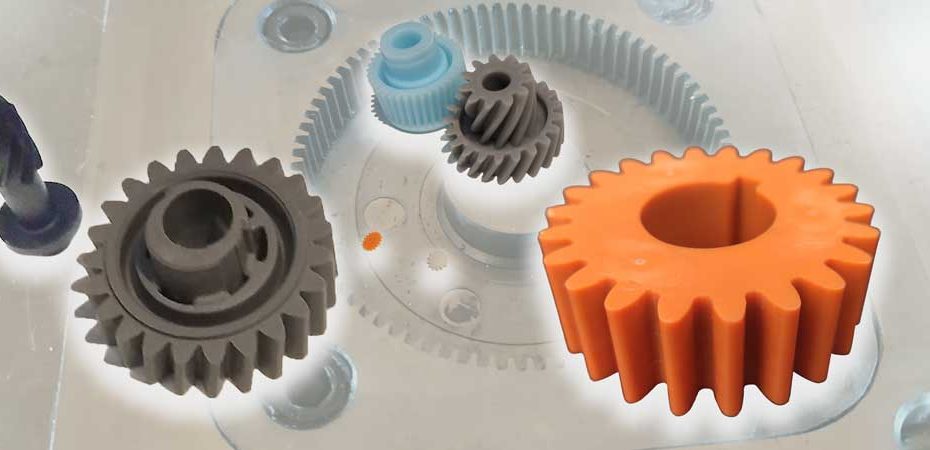
How do plastic wheels fare in terms of weight-bearing capacity compared to other materials?
Plastic wheels have weight-bearing capacity that varies depending on factors such as the type of plastic used and the wheel’s design. Compared to other materials like metal, here’s how plastic wheels generally fare in terms of weight-bearing capacity:
- 1. Light to Medium Loads: Plastic wheels are well-suited for light to medium loads. They can typically support loads ranging from a few pounds up to several hundred pounds, depending on their design and construction. For applications such as office chairs, hand trucks, and smaller carts, plastic wheels are often sufficient.
- 2. Heavy-Duty Loads: When it comes to heavy-duty loads, metal wheels, particularly steel and cast iron wheels, are preferred. Metal wheels can handle much heavier loads compared to plastic wheels. In industrial settings, where loads can exceed a thousand pounds or more, metal wheels provide the necessary strength and durability.
- 3. Load Distribution: Plastic wheels may perform well in load distribution when used in sets or pairs. Distributing the load across multiple plastic wheels can increase their effective weight-bearing capacity. However, metal wheels still excel in heavy load-bearing scenarios.
- 4. Reinforced Plastic Wheels: Some plastic wheels are designed with reinforced materials, internal structures, or additional support to enhance their weight-bearing capacity. These reinforced plastic wheels can handle heavier loads than standard plastic wheels but may not match the load capacity of metal wheels.
- 5. Material and Design: The choice of plastic material and the wheel’s design significantly impact its load capacity. High-quality plastics like nylon and polyurethane tend to have better load-bearing capabilities compared to softer plastics like polypropylene. Additionally, factors such as wheel diameter and tread design play a role in load-bearing capacity.
- 6. Application Considerations: The suitability of plastic wheels for weight-bearing also depends on the specific application. For applications where load capacity is a critical factor, such as heavy machinery or industrial equipment, metal wheels are typically chosen to ensure safety and reliability.
In summary, plastic wheels are suitable for light to medium loads in various applications. They offer benefits such as corrosion resistance, quiet operation, and floor protection. However, for heavy-duty applications with substantial loads, metal wheels, particularly steel and cast iron wheels, are preferred due to their superior weight-bearing capacity and durability.
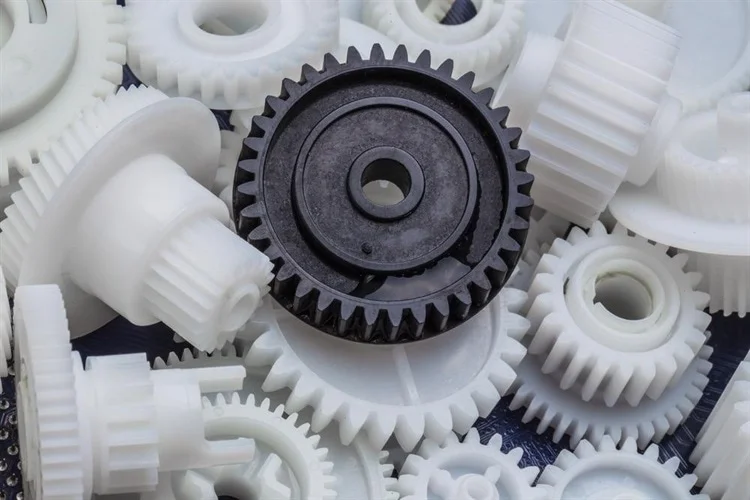
Are there innovations or advancements in plastic wheel technology that have emerged recently?
Yes, there have been several recent innovations and advancements in plastic wheel technology, driven by the need for improved performance, sustainability, and versatility in various applications. Some notable innovations include:
- 1. Sustainable Materials: Manufacturers are increasingly focusing on using recycled and sustainable plastics to make wheels. These eco-friendly materials reduce environmental impact and align with sustainability goals.
- 2. Reinforced Composites: Advancements in composite materials have led to the development of reinforced plastic wheels with enhanced strength and load-bearing capacity. These wheels can compete with metal alternatives in heavy-duty applications.
- 3. Noise Reduction Design: Innovative tread patterns and materials are designed to further reduce noise and vibration in plastic wheels. This is crucial for applications where noise reduction is a priority, such as in office furniture and healthcare equipment.
- 4. Hybrid Wheels: Some recent designs incorporate a combination of plastic and rubber or other materials to optimize performance. These hybrid wheels offer benefits like improved traction, shock absorption, and load capacity.
- 5. Smart Wheels: Emerging technologies are enabling the development of smart wheels equipped with sensors and data-tracking capabilities. These wheels can provide real-time information about load weight, temperature, and wear, enhancing equipment monitoring and maintenance.
- 6. Antimicrobial Properties: In response to increased awareness of hygiene and sanitation, some plastic wheels are now designed with antimicrobial properties to inhibit the growth of bacteria and germs. This is especially relevant in medical and food service equipment.
- 7. 3D Printing: 3D printing technology allows for the rapid prototyping and customization of plastic wheels. Manufacturers can quickly create intricate designs and tailor wheels to specific customer needs.
- 8. Improved Bearing Systems: Advances in bearing technology have led to the development of high-performance, low-friction bearings for plastic wheels, resulting in smoother and more efficient operation.
- 9. Increased Load Capacity: Through innovative engineering and materials, plastic wheels are now capable of handling heavier loads than ever before, expanding their applications in industries like logistics and manufacturing.
- 10. Enhanced Durability: Recent developments have focused on improving the durability of plastic wheels, increasing their resistance to wear, impact, and environmental factors.
These innovations are driving the adoption of plastic wheels in a broader range of applications and industries, making them a competitive choice alongside traditional wheel materials like metal or rubber.

What are the different types and sizes of plastic wheels available in the market?
The market offers a variety of plastic wheels, each designed for specific applications and available in various sizes. Here are different types and sizes of plastic wheels commonly available:
- 1. Caster Wheels: Caster wheels are used for mobility and swiveling in a wide range of applications. They come in sizes ranging from small, furniture casters to large, heavy-duty industrial casters.
- 2. Hand Truck Wheels: These wheels are commonly used on hand trucks and dollies for moving heavy loads. They are available in sizes such as 8-inch, 10-inch, and 12-inch diameters.
- 3. Trolley Wheels: Trolley wheels are used on material handling carts and trolleys. They come in various sizes, including 4-inch, 5-inch, and 6-inch diameters.
- 4. Lawnmower Wheels: These wheels are designed for lawnmowers and other outdoor equipment. They are available in sizes like 8-inch, 10-inch, and 12-inch diameters.
- 5. Office Chair Casters: Office chair casters come in different sizes to fit various chair bases. Common sizes include 2-inch, 2.5-inch, and 3-inch diameters.
- 6. Heavy-Duty Industrial Wheels: These wheels are used in industrial and manufacturing settings. They are available in larger sizes, such as 6 inches, 8 inches, and even up to 12 inches or more in diameter.
- 7. Skateboard Wheels: Plastic skateboard wheels come in various sizes, typically ranging from 50mm to 60mm in diameter, with different hardness levels for different riding styles.
- 8. Conveyor Wheels: Conveyor wheels are used in material handling and conveyor systems. They come in sizes suitable for specific conveyor designs and loads.
- 9. V-Groove Wheels: V-groove wheels are designed for use on tracks or grooves. They come in sizes suitable for different track profiles and load capacities.
- 10. Trailer Jack Wheels: Trailer jack wheels are used for trailer jacks and stabilizers. They come in sizes such as 6-inch, 8-inch, and 10-inch diameters.
- 11. Light-Duty Wheels: These wheels are used in various light-duty applications, such as small carts and furniture. They are available in sizes ranging from 1 inch to 6 inches in diameter.
- 12. Specialized Wheels: Some plastic wheels are designed for specific applications, such as luggage wheels, boat trailer rollers, and gate wheels. Their sizes vary depending on the intended use.
The availability of plastic wheels in different types and sizes allows them to cater to a wide range of industries and applications. When selecting a plastic wheel, it’s essential to consider factors like load capacity, wheel diameter, tread design, and material to ensure it meets the requirements of the specific use case.


editor by Dream 2024-04-22
China Custom 0.8/1.1/1.2mm Chrome Housing Sliding Window Pulleys Wheels Rollers with Nylon6200/608z/6001zz/6201zz Plastic PP Bearing
Product Description
| Product name | Door and Window Wheel |
| Brand name | ALLY |
| Model number | WW-08 |
| Material Shell | Zinc plated iron/Aluminum profile/Aluminum alloy/Stainless steel /Plastic |
| Wheel material | Nylon/ Iron/Plastic/Aluminum/PP/POM/Brass |
| Usage | Aluminum door and window wheel, wardrobe wheel, screen window wheel, plastic steel window wheel |
| Wheel bearing | Straight core, single ball, bearing, ball bearing, needle bearing |
| Service | OEM/ODM |
| Sample time | Within 3-5days |
| Delivery time | 20-25 working days |
| Payment | 30% deposit,70% balance before delivery by T/T |
| Shipping port | HangZhou China |
Ally Hardware is a trusted global partner,successful elite teams in the security,time management and operation process control segment. It established in 2008,which specialized in aluminium window&door and glass door accessories,such as:window handle,window hinge,window roller,window lock,lock body and cylinder,door handle ,door hinge,door lock,shower hinge ,shower knob,waterproof,sliding door fitting ,handrail fitting and so on.
with 12600 square meters,150 workers,10QC,Automatic equipment,A complete line of production,After-sale service personnel in our factory
exported to over 70 countries
Accept OEM or ODM services
with repeat order rate: 85%
Product quality:Customers’ satisfaction is our standard
provide professional design and solutions
One-stop doors and Windows system solution provider
Our concept:Cooperation and CHINAMFG and harmonious development.We are looking for partners all over the world join us and work together.
/* January 22, 2571 19:08:37 */!function(){function s(e,r){var a,o={};try{e&&e.split(“,”).forEach(function(e,t){e&&(a=e.match(/(.*?):(.*)$/))&&1
| After-sales Service: | Online Technical Support |
|---|---|
| Material: | Metal |
| Type: | Ball Bearing |
| Frame Material: | Iron |
| Roller Material: | Nylon |
| Usage: | Window, Door |
| Customization: |
Available
|
|
|---|

Can you provide examples of products or machinery that commonly use plastic wheels?
Plastic wheels are used in a wide range of products and machinery across various industries due to their versatility and unique qualities. Here are examples of products and machinery that commonly use plastic wheels:
- 1. Office Furniture: Office chairs often feature plastic caster wheels for smooth and quiet movement on office floors.
- 2. Material Handling Equipment: Hand trucks, dollies, and carts used in warehouses and distribution centers frequently use plastic wheels to transport goods efficiently.
- 3. Lawn and Garden Equipment: Lawnmowers, garden carts, and wheelbarrows are equipped with plastic wheels for easy maneuverability on lawns and uneven terrain.
- 4. Retail and Shopping Carts: Shopping carts in supermarkets and retail stores typically have plastic wheels for easy navigation through aisles.
- 5. Medical Equipment: Hospital beds, medical carts, and mobility aids often incorporate plastic wheels, as they are easy to clean and resist corrosion.
- 6. Aerospace Ground Support: Ground support equipment at airports, including baggage carts and maintenance vehicles, may use plastic wheels for their lightweight properties.
- 7. Food and Beverage Handling: Food service equipment, such as serving trolleys and food processing machinery, often feature plastic wheels due to their resistance to moisture and corrosion.
- 8. Recreational Vehicles (RVs): RV leveling jacks and stabilizers utilize plastic wheels to provide stability and ease of adjustment when parked.
- 9. DIY and Home Improvement Tools: Hand trucks, utility carts, and toolboxes used for DIY and home improvement projects may have plastic wheels for ease of movement.
- 10. Industrial Machinery: Some industrial machines and equipment incorporate plastic wheels to facilitate movement and protect factory floors.
- 11. Conveyor Systems: Conveyor systems in manufacturing and logistics often use plastic wheels to support the movement of goods along production lines.
- 12. Skateboards and Skateboarding Equipment: Skateboard wheels are typically made of plastic, offering various sizes and hardness levels to suit different riding styles.
- 13. Boat Trailer Rollers: Rollers on boat trailers are commonly made of plastic, as they resist corrosion when exposed to water and provide smooth boat launching and retrieval.
- 14. Gate Hardware: Some gate wheels and sliding door systems feature plastic wheels for smooth operation and reduced noise.
These examples demonstrate the widespread use of plastic wheels in diverse applications, emphasizing their adaptability and suitability for various industries and products.

Are there innovations or advancements in plastic wheel technology that have emerged recently?
Yes, there have been several recent innovations and advancements in plastic wheel technology, driven by the need for improved performance, sustainability, and versatility in various applications. Some notable innovations include:
- 1. Sustainable Materials: Manufacturers are increasingly focusing on using recycled and sustainable plastics to make wheels. These eco-friendly materials reduce environmental impact and align with sustainability goals.
- 2. Reinforced Composites: Advancements in composite materials have led to the development of reinforced plastic wheels with enhanced strength and load-bearing capacity. These wheels can compete with metal alternatives in heavy-duty applications.
- 3. Noise Reduction Design: Innovative tread patterns and materials are designed to further reduce noise and vibration in plastic wheels. This is crucial for applications where noise reduction is a priority, such as in office furniture and healthcare equipment.
- 4. Hybrid Wheels: Some recent designs incorporate a combination of plastic and rubber or other materials to optimize performance. These hybrid wheels offer benefits like improved traction, shock absorption, and load capacity.
- 5. Smart Wheels: Emerging technologies are enabling the development of smart wheels equipped with sensors and data-tracking capabilities. These wheels can provide real-time information about load weight, temperature, and wear, enhancing equipment monitoring and maintenance.
- 6. Antimicrobial Properties: In response to increased awareness of hygiene and sanitation, some plastic wheels are now designed with antimicrobial properties to inhibit the growth of bacteria and germs. This is especially relevant in medical and food service equipment.
- 7. 3D Printing: 3D printing technology allows for the rapid prototyping and customization of plastic wheels. Manufacturers can quickly create intricate designs and tailor wheels to specific customer needs.
- 8. Improved Bearing Systems: Advances in bearing technology have led to the development of high-performance, low-friction bearings for plastic wheels, resulting in smoother and more efficient operation.
- 9. Increased Load Capacity: Through innovative engineering and materials, plastic wheels are now capable of handling heavier loads than ever before, expanding their applications in industries like logistics and manufacturing.
- 10. Enhanced Durability: Recent developments have focused on improving the durability of plastic wheels, increasing their resistance to wear, impact, and environmental factors.
These innovations are driving the adoption of plastic wheels in a broader range of applications and industries, making them a competitive choice alongside traditional wheel materials like metal or rubber.

How does the design of a plastic wheel contribute to its durability and performance?
The design of a plastic wheel plays a significant role in determining its durability and performance. Several key design factors contribute to these attributes:
- 1. Material Selection: The choice of plastic material is crucial. High-quality plastics, such as polyurethane, polypropylene, and nylon, are commonly used for wheel construction. These materials offer excellent durability, impact resistance, and resistance to wear and tear.
- 2. Load Capacity: The design of the wheel must consider the expected load capacity. Reinforcements, such as ribbing or internal structures, can be added to strengthen the wheel and enhance its load-bearing capabilities. Proper load capacity design ensures that the wheel can support the intended weight without deformation or failure.
- 3. Bearing Type: The design of the wheel includes the type of bearing used. Precision bearings, such as ball bearings or roller bearings, reduce friction and ensure smooth rolling. Properly designed bearings enhance the wheel’s performance by reducing resistance and minimizing wear.
- 4. Tread Design: The tread design on the wheel affects its grip, stability, and noise level. Different tread patterns are used for specific applications. For example, smooth treads provide reduced rolling resistance, while treaded designs offer improved traction. The choice of tread design depends on the intended use.
- 5. Hub and Axle Compatibility: The design of the wheel’s hub and axle connection is essential for secure attachment. It should be compatible with the mounting hardware used in the application. A well-designed hub and axle connection ensure stability and prevent wobbling or detachment during use.
- 6. Resilience: The design should consider the wheel’s ability to absorb shocks and impacts. Resilient plastic materials can withstand sudden impacts without cracking or breaking. This is especially important in applications where the wheel may encounter rough terrain or obstacles.
- 7. Temperature Resistance: Depending on the application, plastic wheels may need to withstand a wide range of temperatures. The design should factor in the material’s temperature resistance to ensure that the wheel remains functional in extreme conditions.
- 8. Size and Dimensions: The size and dimensions of the wheel are critical for load distribution and stability. Properly sizing the wheel according to the application’s requirements ensures optimal performance and durability.
- 9. Corrosion Resistance: In some environments, corrosion resistance is essential. The design may incorporate materials or coatings that protect against corrosion, ensuring a longer service life.
- 10. Wheel Mounting: The method of mounting the wheel to the equipment or vehicle is part of the design. It should be secure and reliable to prevent wobbling or detachment during use.
- 11. Weight Distribution: Proper weight distribution across the wheel is important for even wear and reduced stress on the wheel. Design considerations may include the wheel’s shape and load-bearing capacity to ensure even weight distribution.
A well-designed plastic wheel takes into account these factors to maximize its durability and performance. It should be capable of withstanding the demands of its intended application while providing smooth and reliable movement.


editor by CX 2024-03-26